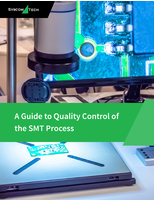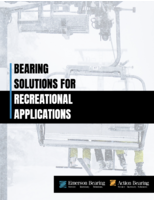Reaction Injection Molding Services
Bayer MaterialScience as a Development Collaborator to the Global Auto Industry: Innovations for Production-Line Application
Bayer MaterialScience as a development collaborator to the global auto industry: Innovations for production-line application
Pittsburgh, May 12, 2008 - The success enjoyed by Bayer MaterialScience (BMS) in the automotive industry is based on its extensive product portfolio, its wide-ranging know-how in processes and technologies and, above all, its many years of experience in all aspects of vehicle production. "Our expertise is reflected in the numerous concept cars we have developed with our collaborators in the automotive industry, providing innovative and thought-provoking ideas for future car design. The most recent example is the 'i-mode,' the latest concept car from Hyundai. That was recently unveiled at the Geneva Motor Show 2008," says Dr. Klaus Zander, key account manager for Hyundai at BMS.
Apart from the materials and technologies used in the "i-mode," BMS has many other innovative materials and processes to offer. They are all ready for the production line and represent significant advances in terms of comfort, appearance, safety, weight reduction and cost savings.
One-step RIM process for light-stable decorative skins
BMS and a collaborator company recently succeeded in optimizing the Reaction Injection Molding (RIM) process to produce light-stable, decorative skins made of polyurethane - even in bright colors. The tailor-made material used in the new process is made with UV-stable Bayflex® LS (Light Stable) polyurethane systems. "This represents an alternative to both polyurethane spray-on skin technology and in-mold coating (IMC) RIM technology. There are good prospects for this application, particularly with decorative skins for large instrument panels, arm rests, center consoles and door trims in the interiors of mid-size and top-of-the-line cars and commercial vehicles," says Gregor Murlowski, an expert in polyurethane skins in the Polyurethanes Business Unit of BMS. The RIM skin is produced in a one-step process, which offers cost advantages over the established two-stage, in-mold coating RIM process. Depending on the component, cycle times can be reduced by up to 50 percent.
New back-injection technique for light-colored, light-stable TPU soft-touch surfaces
In car interiors, there is a growing demand for components with light-colored, light-stable surfaces offering a soft-touch finish and high resistance to abrasion. BMS and a number of collaborator companies have now developed a back-injection technique for manufacturing such parts economically in a single step. The process is based on a textureless, textile-reinforced thermoplastic polyurethane (TPU) film, back-injected with a thermoplastic.
"For this new technology, we have developed tailor-made aliphatic - and, therefore, lightfast - variants of our Desmopan® TPU that are also free of halogens and plasticizers. As a result, the values for gaseous and condensable emissions are very low, as requested by many OEMs," explains Jens Ufermann, a TPU coatings expert at BMS. Thanks to the low-temperature flexibility of Desmopan TPU, the new process is particularly suitable for components in the head impact and airbag exit areas, which must not splinter in the event of a crash. Interchangeable inserts with different surface textures can easily be placed in the molds. This makes it possible to economically produce a wide range of different decorative surfaces.
Injection moldings with a soft feel - new flexible production technology
Direct skinning is a new, cost-effective production technology for the direct application of decorative polyurethane skins and foams to selected areas or the entire surface of an injection molded part while it is still in the closed mold.
"The beauty of this technology is its flexibility. The quality of the polyurethane finishes is outstanding, and it offers enormous versatility with regard to color, layer thickness and grain. The finishes can also be combined with Class A surfaces, for example, based on our Bayblend® T85XF polycarbonate/ABS blend," says Rainer Protte, team leader advanced processing at BMS. Color changes can be made from one shot to the next, allowing economical production of short runs of different colors. A major advantage is that the coated component is manufactured in a single injection molding tool. This has a favorable effect on costs because the logistics are far simpler than with conventional production methods. Parts manufactured under close-to-production conditions have shown that the technology is ideal for large, complex parts. It has enormous potential for components with high-grade surfaces for car interiors, such as arm rests, door liners, decorative trim and facings. BMS supplies the thermoplastic and polyurethane systems needed for the direct skinning process from a single source - including light-stable polyurethane systems for light-colored surfaces.
Polyurethane film composites - roof modules with a Class A surface
A new concept for manufacturing lightweight roof modules and antenna covers with a Class A surface is based on a pre-coated Makrofol® polycarbonate film, subsequently back-injected with a Baydur® STR polyurethane system reinforced with long glass fibers. "This approach yields considerable cost savings, because there is no longer any need for complicated and cost-intensive wet coating the final plastic part on coating lines," explains Dr. Stephan Schleiermacher, an expert in polyurethane spray systems at BMS. The polycarbonate film is provided with a two-coat system consisting of a colored base coat and a clear top coat, with the latter only finally being cured with UV light after thermoforming of the film. Finally, back-injecting the coated film insert with Baydur STR results in the finished component.
Polyurethane film composites offer considerable design freedom with roof modules and antenna covers, and yield much better surface quality than comparable solutions made of Sheet Molding Compounds (SMCs).
Bodywork parts made of polyurethane - lightweight and coatable online
A reinforced polyurethane developed by BMS for lightweight construction in the automotive industry is made with Bayflex® 180/190 polyurethane systems. Typical applications include fenders and add-on parts, such as door sill covers. Correctly designed parts made from this material are able to withstand the high temperatures required for electrodeposition coating (EDC), which means that they can be coated online, thereby averting the problem of color matching. "Our polyurethane materials have several advantages over steel and aluminum, for example their lower susceptability to minor knocks, higher low-temperature impact strength, low weight and greater design freedom," comments Dr. Hans-Detlef Arntz, a polyurethane expert at BMS. The reinforced material made with Bayflex 180/190 polyurethane systems also has a low coefficient of linear expansion, making it easier to achieve zero gap tolerance between the parts. Because its water absorption is also lower than that of other polymer materials, the parts ensure an accurate fit and show excellent dimensional stability even in a warm, humid climate.
Foam-filling for bodywork cavities - greater safety
Passive safety plays a key role in bodywork design. The new polyurethane system BaySafe® ST can be used to foam-fill the cavities of the bodywork frame, such as the side members, rocker panels and A nodes. The density of the resultant rigid foam can be adjusted to between 200 and 600 kg/m3. It forms a strong, permanent bond with the metal surfaces, which improves the stiffness and flexural strength of the body components. As a result, they have higher mechanical resistance to the external forces generated in the event of a crash. In addition, the rigid foam has a high energy-absorbing capacity. "With our polyurethane system, the weight of the load-bearing body parts can be lowered by reducing the thickness of the metal without affecting the stiffness and flexural strength," explains Klaus-Werner Huland, an expert in polyurethane bodywork materials at BMS. Alternatively, it is possible to significantly increase the structural strength and safety of the vehicle with virtually no increase in weight.
Polyurethane carpet backing - excellent sound absorption
Good acoustics improve the comfort of a car interior. New Bayflex® SA and Bayflex® SP polyurethane systems have been developed to provide effective sound absorption when used in customized heavy-duty applications such as car carpet backings and bulkhead linings. Bayflex SA polyurethane systems are made of a moldable, solid polyurethane material, reinforced with up to 70 percent fillers. Because of their high mass, the systems are ideal for dampening solid-borne sound. Bayflex SP polyurethane systems have the same set of properties, but offer greater flexibility, due to the fact that the systems can be processed by spraying. They are particularly economical and versatile for small production runs in a robot-assisted process, where the robot allows precise control of the layer thicknesses. "Both these polyurethane systems can be combined with flexible foam made from Bayfit® Tec polyurethanes, whose open-cell structure insulates very effectively against air-borne sound. The net result is a multi-polyurethane solution with excellent acoustic properties," explains Dr. Hans-Detlef Arntz, a polyurethanes expert at BMS.
Bayer MaterialScience LLC is one of the leading producers of polymers and high-performance plastics in North America and is part of the global Bayer MaterialScience business with nearly 15,400 employees at 30 sites around the world and 2007 sales of 10.4 billion euros. Business activities are focused on the manufacture of high-tech polymer materials and the development of innovative solutions for products used in many areas of daily life. The main segments served are the automotive, electrical and electronics, construction, medical, and sports and leisure industries. Our inorganic basic chemicals unit produces chlorine and related essential products for the chemicals industry. Let us give life to your vision. Bayer MaterialScience - Where VisionWorks.
Bayer Corporation, headquartered in Pittsburgh, is a subsidiary of Bayer AG, an international health care, nutrition and high-tech materials group based in Leverkusen, Germany. In North America, Bayer had 2007 net sales of 8.1 billion euros and employed 16,800 at year end. Bayer's three subgroups, Bayer HealthCare, Bayer CropScience and Bayer MaterialScience, improve people's lives through a broad range of essential products that help diagnose, prevent and treat diseases; protect crops and enhance yields; and advance automobile safety and durability.
For more information about Bayer MaterialScience's technology, call 1-800-662-2927, e-mail naftainfo@bayerbms.com or visit www.bayermaterialsciencenafta.com.
Media Contact(s)
Name: Bill Allan
Phone: 412-777-5200
Company: Bayer MaterialScience
Email: bill.allan@bayerbms.com




